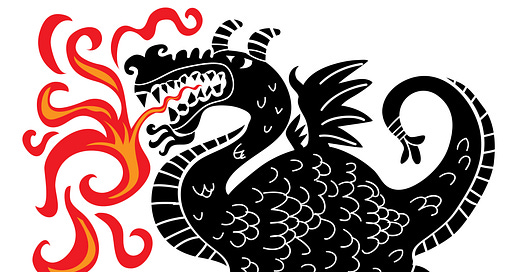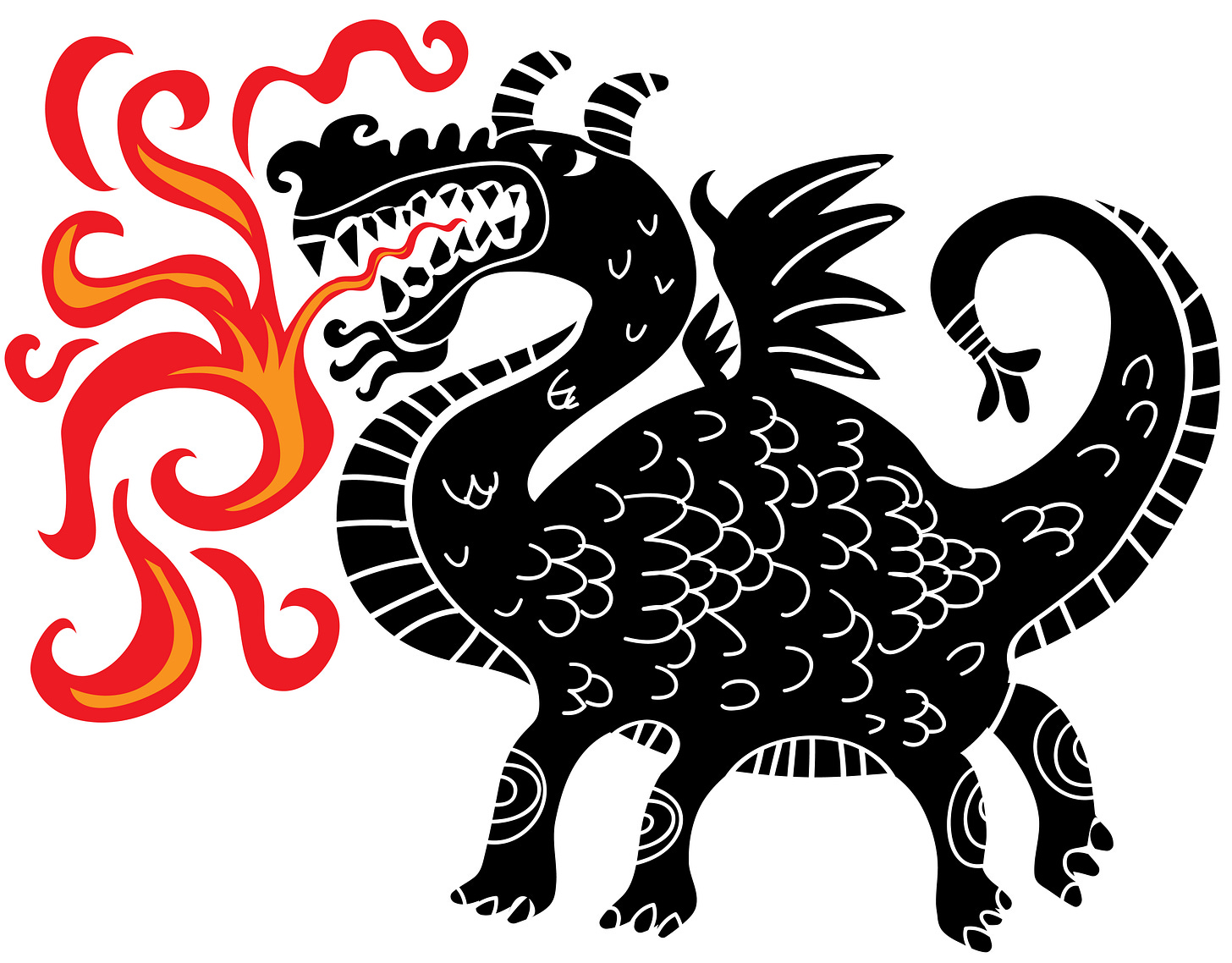I’m hosting regular ‘silent sits’ as part of my programme of online retreats - an hour of companionable, communal silence for those who would relish some extra contemplative space. These are open to all full members, and there’s a link for our next on, on Tuesday 8th April at 8pm UK time, at the bottom of this post.
This post is the latest in a series called Bright Ideas for Dark Times, in which I explore how we can make it through this uncertain period. You can find the most recent ones below.
7. ‘Sometimes, my brain empties out…’
This week, I’ve been stuck by rage, hot and unruly, pluming out of me in sudden blasts. The world is glass and I am a bluebottle, my pitch rising as I buzz incoherently against these strange, insubstantial barriers. Everything is infuriating, which is basically true: if the world doesn’t make you angry now, it never will.
I used to consider myself an angry person, but now it takes me by surprise. I was a rageful child, overwhelmed by a sensory landscape that didn’t seem to bother anyone else, prone to outbursts that embarrassed everyone. One of my earliest memories is walking up to one of my parents’ friends, and kicking him hard in the shin. I can still watch the shock on everyone’s faces unfold in slow motion, like the crumple zone of a car. My rage to theirs, a transfer of heat.
The strange thing about that memory is that I can feel the impact of the kick in my own shin, as if I received it rather than dealt it. That is, I suppose, the perfect analogy for where anger gets us. It leaves us more harmed than harming most of the time. It is a blow landed on ourselves.
I didn’t learn my lesson though, not yet. If anything, I ramped it up when I reached my teenage years, learning it as a method. At the time, it seemed like the best defence. I was sick of the boys on the school bus, the men who followed us down the hill at the end of each day, the lads who seemed to pop up from nowhere to proposition us, and always had a vile insult ready when we said no. I decided that the best remedy was to take no shit, to act bigger than I was, to pour fire on anyone who came close.
It worked to an extent; it was powerful. There was an afternoon when we were walking back to a friend’s house after school, and we turned down an alley to find a man masturbating. He lurched towards us, and I instinctively roared and ran towards him instead, chasing him until he was out of sight. I was sick of it, this endless incursion into my space. I don’t know what I would have done if I’d have caught him. I didn’t want to feel small anymore, and so I refused it, and made myself as big as possible instead, a shadow stretched by a low light.
That roar, that willingness to run towards trouble, served me well for a while. But all forms of power run out of hand unchecked. By the time I reached adulthood, anger was a default rather than a last recourse, a way to quieten anyone who made me feel threatened, a preemptive strike. It felt safer to pick a fight than to make a connection, and it was certainly easier than ever being wrong.
I worked on that. Once I began teaching, I began to see how losing your temper was actually losing your power. I learned to set firm boundaries instead of reverting to anger; it was better for everyone. Once I moved on to other jobs, I prided myself in being the calmest, most patient person in the room, even if that sometimes meant digging my fingernails into my palms. When, eventually, I learned to meditate, another load of angst dissipated, and I was shocked to realise that others had noticed. ‘It’s like the rage has left you,’ said a friend. ‘It always felt like it was just beneath the surface.’
I thought I was perhaps done with anger, but then, years later again, I noticed my own behaviour on Twitter, constantly ranting about enraging things, sharing tweets that I knew would spark fury in others. Each morning, I would log on and brace myself for another blast of ire. It felt like the right thing to do, somehow, to be witnessing all the world’s outrages and having my say. But it made me so tired, and so miserable. Most of the time, I logged on because I was afraid that the rage might have been directed at me. I came to realise that I had not left rage behind, but merely compartmentalised it instead, allowed it to live on in this place that was both real and not real, a hideously disfigured portrait of my enraged self in my digital attic. I decided I had to leave.
We often believe that anger is bad - a kind of slippage in which we reveal a dark side of the self that ought to be repressed. But - like most emotions - I think it’s morally neutral. Anger is a bright force, urgent and necessary. It is the right response to the outrageous things that happen in this world, a signal to our bodies to take action. Rage is an uprising; without it, we allow ourselves to be wounded over and over again. When it sparks for others, it is a sublimation of compassion, an electrified connection.
Yet it is also vicious, dangerous, unpredictable; it mixes badly with alcohol and loneliness; it should be dissipated rather than stoked. Anger is a problem when we allow ourselves to get stuck in it; it is toxic in isolation. It is intrinsically related to violence, to spite, to harm. Too often, we think it’s the equivalent of righteousness, and that’s a dangerous fallacy. When we allow it to dominate our discourse, we not only exhaust ourselves in anger alone, without ever getting to the point of action; we also risk becoming part of the cycle of cruelty that has come to dominate our politics.
We must - and will - continue to get angry about infuriating things, but before we act, we need to ask a very important question: are we using our fury to effect positive change, or simply to fuel more hatred? If it’s the latter, we’re becoming part of the harm.
I no longer see my own anger as a personality trait. I deserved to be able to feel angry in order to understand the parts of my life that were not fair or safe; but I deserved, also, to be allowed to let it go. For a while, it seemed to me that anger was an end in itself, the ultimate destination, a form of enlightenment. Now, I see it as a beginning, a waymarker for change. Other emotions are available. They’re also more effective.
Five bright ideas for coping with anger
Keep reading with a 7-day free trial
Subscribe to The Clearing by Katherine May to keep reading this post and get 7 days of free access to the full post archives.





